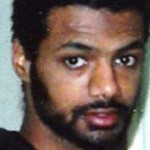Friday
Feb132009
Afghanistan: Karzai Talks Back to Washington
 Friday, February 13, 2009 at 6:25
Friday, February 13, 2009 at 6:25  Morning Update (6:10 a.m. GMT; 1:10 a.m. Washington): Afghan President Hamid Karzai (pictured), trying to counter US Government criticism of his leadership, has offered a conciliatory line on CNN:
Morning Update (6:10 a.m. GMT; 1:10 a.m. Washington): Afghan President Hamid Karzai (pictured), trying to counter US Government criticism of his leadership, has offered a conciliatory line on CNN:U.S. forces will not be able to leave soon in Afghanistan because the task is not over. We have to defeat terrorism. We'll have to enable Afghanistan to stand on its own feet. We'll have to enable Afghanistan to be able to defend itself and protect for its security.
Then, the United States can leave and, at that time, the Afghan people will give them plenty of flowers and gratitude and send them safely back home.
Beyond the headline, it should be noted that Karzai was less than effusive about the proposed US troop surge, "Any addition of troops must have a purposeful objective that the Afghan people would agree with." He said that the new American forces should be placed on the border and in the fields fighting the drug trade rather than in Afghan villages.
And Karzai maintained his criticism of the US military's killing of civilians:
These activities are seriously undermining the confidence of the Afghan people in the joint struggle we have against terrorism and undermining their hopeful future. We'll continue to be a friend. We'll continue to be an ally. But Afghanistan deserves respect and a better treatment.
The Afghan President played down any responsibility for corruption, which the Obama Administration has increasingly attributed to Karzai's negligence or misrule. ""Sure, corruption in the Afghan government is as much there as in any other Third World country," he said. ""Suddenly this country got so much money coming from the West, suddenly so many Afghans came from all over the world to participate. Suddenly there were projects -- suddenly there was this poverty that turned into some sort form of prosperity for this country."
tagged  Barack Obama,
Barack Obama,  CNN,
CNN,  Hamid Karzai,
Hamid Karzai,  US Military in
US Military in  Afghanistan
Afghanistan
 Barack Obama,
Barack Obama,  CNN,
CNN,  Hamid Karzai,
Hamid Karzai,  US Military in
US Military in  Afghanistan
Afghanistan 



